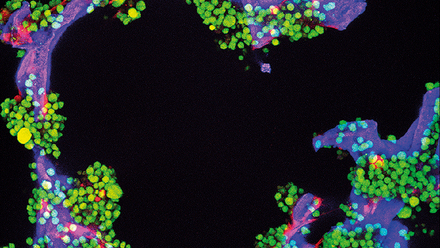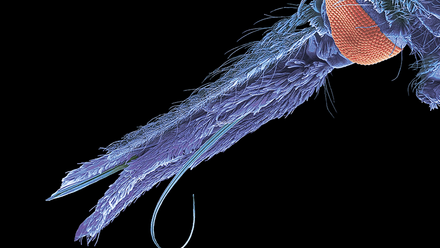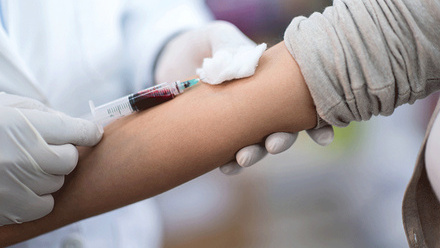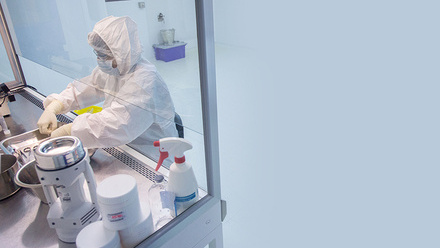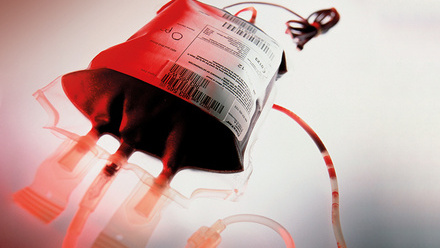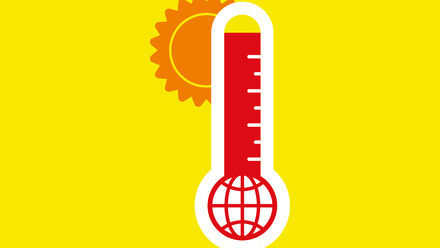My Lab: Specialised Transplantation Testing
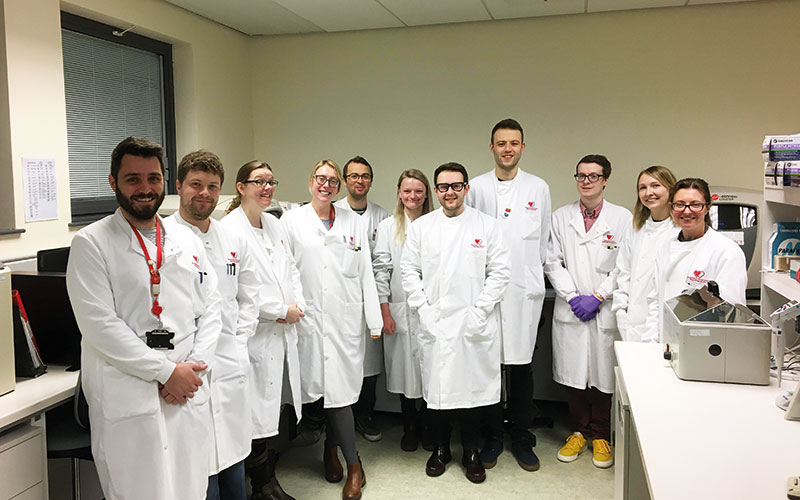
Housed within the Welsh Blood Service (WBS), the Welsh Transplantation and Immunogenetics Laboratory (WTAIL) has provided specialised transplantation testing, advice and support since 1974.
WTAIL incorporates the Welsh Histocompatibility and Immunogenetics Service (WHAIS) – the ISO: 15189 accredited histocompatibility and immunogenetics (H&I) laboratory, as well as the Welsh Bone Marrow Donor Registry (WBMDR) and UK NEQAS for H&I.
WHAIS’ work is primarily encompassed by support of clinicians caring for patients requiring kidney and or pancreas transplantation, haematopoietic stem cell transplantation (HSCT), and specialist platelet immunology services. We also provide human leukocyte antigen (HLA) disease association typing, and pharmacogenetic testing.
Our team consists primarily of clinical scientists, alongside biomedical scientists and assistant practitioners. The laboratory provides a 24/7 on-call service supporting deceased kidney and pancreas transplantation.
Facilitating transplants at our local centre, the University Hospital of Wales, prospective solid organ recipients undergo HLA-typing, ABO-blood grouping and HLA-antibody testing, prior to activation on the national deceased kidney/pancreas transplant register.
Deceased donor organs are allocated nationally, via an algorithm devised by Organ Donation and Transplantation (ODT), which includes factors like waiting time, ABO group and HLA compatibility.
When a suitable organ is identified for one of our patients the laboratory performs a donor lymphocyte-recipient serum crossmatch, which gives an indication of the direct histocompatibility between the pairing. For some patients, a crossmatch can be omitted in lieu of a virtual crossmatch, enabling faster transplantation. The lab also supports live donor transplant compatibility testing.
For HSCT transplants, where the HLA matching is critical, samples are received from clinicians, along with any siblings, as these provide the best opportunity of having a matched donor; HLA typing is performed and if no sibling donors are matched, scientists in WHAIS perform donor searches of global donor volunteer register is to find a suitable donor. The team selects several prospective HSCT donors, considering factors like HLA match, CMV status, age and gender. At an MDT meeting a preferred and backup donors are selected. The laboratory receives samples from the selected donors, which is typed in-house to confirm the HLA type listed in advance of the HSCT transplant.
Another of WHAIS’ roles is disease association HLA-typing. Many auto-immune diseases have HLA-associations due to the role of HLA in immunity, for example HLA-B27 is requested to aid diagnosis of ankylosing spondylitis. There is also strong correlation between coeliac disease and presence of HLA-DQ2 and DQ8, and the presence of B*57:01 and hypersensitivity to the anti-HIV drug, Abacavir.
HLA and human platelet antigen (HPA) testing is provided to patients for a variety of conditions, primarily immune-mediated destruction of transfused platelets or neonatal alloimmune thrombocytopenia (NAIT). Working alongside clinical colleagues within the WBS our team provides HLA/HPA-selected platelet support to thrombocytopenic Welsh patients.
The WBMDR manages the Welsh registry of HLA-typed unrelated volunteers, who are searched globally and selected to donate stem cells. UK NEQAS for H&I is the national EQA provider for H&I. They provide 19 H&I related-schemes to externally assess the quality of lab results and provide specialist educational support as required.

